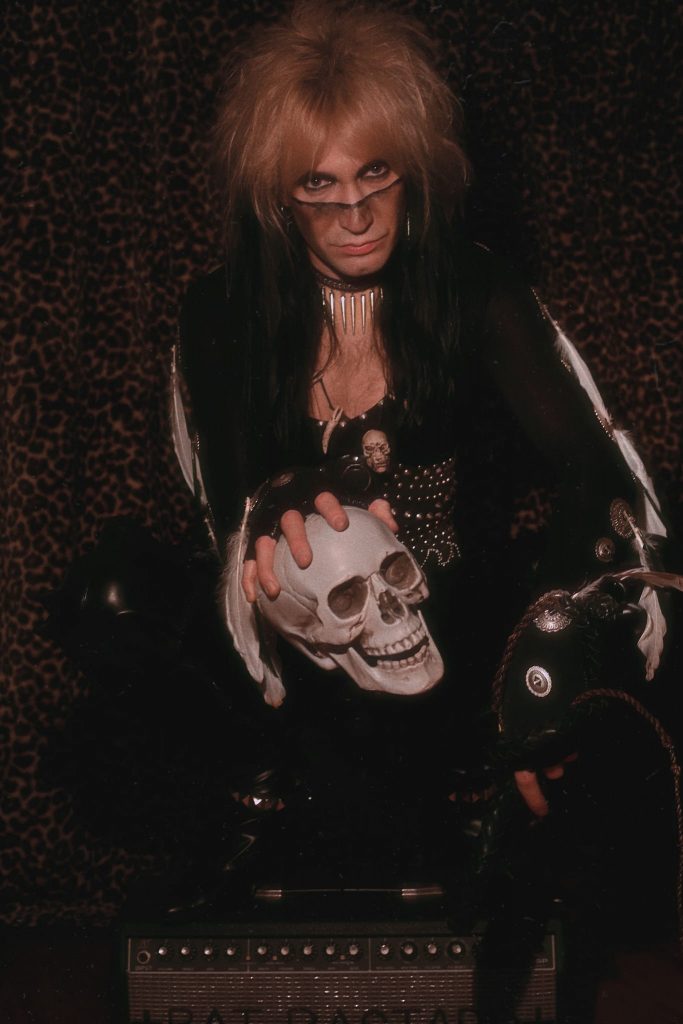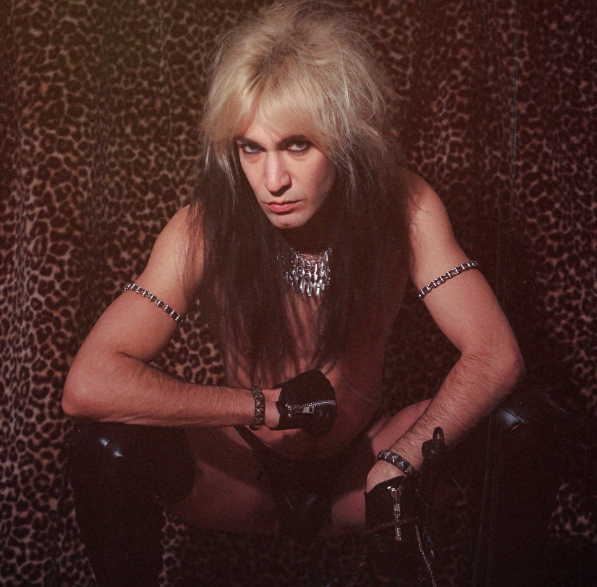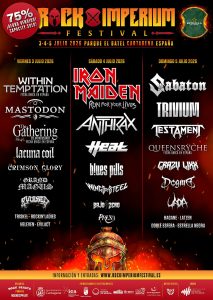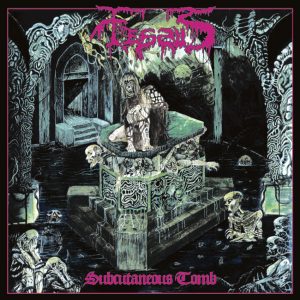Sabïre’s Scarlett on Mental Struggles, Artistic Grit, and Why He Aspires to Work Like Taylor Swift

In this raw and unapologetic conversation, Scarlett, frontman of Australia’s heavy metal band Sabïre, opens up about the emotional chaos that fuels his music, the brutal honesty behind his latest album Jätt, and his ongoing battle with mental health. From admitting he’s lost touch with reality to declaring his unexpected admiration for Taylor Swift’s relentless work ethic, Scarlett pulls no punches. We dive deep into the personal turmoil behind his creative process, the weight of self-expression, and his hopes to reclaim his discipline while pushing through the darkness. This is a no-holds-barred glimpse into the mind of an artist who refuses to wear a mask, on stage or off.
-Hi Scarlett, first off thanks for answering to our questions. How’s everything going? What’s keeping you busy these days?
I’m terrible. I’ve grown overweight, I’m highly distressed and deeply unhappy. I can’t even tell you what’s keeping me busy these days cos’ I genuinely don’t know what’s real anymore. I’m struggling to trust my own reality.
-You’ve been very open about your struggles with mental health, and fans have been supportive. How did those personal battles shape the emotional landscape of Jätt, and how do you feel today compared to when the album was being written?
They really only shaped two songs, “The Last Day” and “The River.” As I said above, I don’t feel great. I didn’t think I’d be here feeling like this, but I do. I think I was actually in better shape with this album, but who the hell knows and honestly it does not make a whole lot of difference.
-The concept of “Jätt” reflects a fictional interpretation of hell. What personal experiences or emotions influenced your choice to explore this dark theme, and how does it tie into your worldview?
It turned into a big long-winded anti-suicide message. I did this whole dumb thing where I said “I carry the weight of the world so you don’t have to cos I can’t get any better” Oh poor you. Not my best moment at all and I’m not proud of it. It won’t happen again, I’ve learned since then, but someone might still resonate with that feeling and hopefully could feel less alone.
-You’ve mentioned that songwriting has been a cathartic outlet for you, especially during emotionally charged moments in your life. Could you share how creating this album helped you process some of those experiences?
It’s the writing of the lyrics and finding the melody that does it. It helps me feel a sense of empowerment, like I am above or dancing with the pain I am feeling at the time. That’s what some of the music on that album helped me to do. Honestly though, most of those songs that I do that with, have not been recorded yet.
-Balancing life, relationships, and a musical career can be taxing. Has working on Jätt allowed you to confront and process some of the challenges you’ve faced in your personal life, such as the tension between ambition and personal fulfillment?
No not really. It proved to me that doing a record like this wasn’t a good idea. I’ll do better next time.
-Your recent music often carries raw emotional energy. Are there particular songs on Jätt where you feel you’ve poured out a deeper, more vulnerable side of yourself that perhaps you weren’t able to express before?
Absolutely not. I’ve been writing like this for years, it’s second nature at this point. As natural and instinctive as drinking water.
-As a male musician in the heavy metal scene, which often values toughness and bravado, how do you navigate showing vulnerability in your music and personal life? Do you feel that being open about your struggles challenges stereotypes within the community?
Ha! There’s nothing to it! How can a man have toughness or bravado if he has so little to be proud of? It’s THAT simple! It probably challenges a lot of stereotypes, I mean, someone might look at me and think I’m one way, then actually speak to me and find themselves walking away feeling disappointed that I’m not that way at all. One positive thing might be that I could appear to be “leading” by example so other men can stop practicing kayfabe in their lives and their public image.
-You’ve been candid about your dissatisfaction with aspects of the music industry, from delays to financial pressures. How do you maintain your artistic integrity in the face of these obstacles, and what have you learned from navigating these challenges?
What integrity? I’ve learned that I’m not trying hard enough and need to really step my game up if I want to earn a serious living from making music.
-In today’s hyper-connected world, how do you manage your relationship with social media and its influence on your mental health, given that it can be both a tool for connection and a source of pressure for artists?
Currently not handling it too well, but it’s a necessary part of music now, which is great. At its best social media posts from bands can be really fun and exciting, and at the worst, simply missable, or even worse, I’d say too tiktoky. At MY best, I like making snarky little posts, but it DOES take time and that’s the only drawback really. It just comes down to consistent discipline, something I am lacking with myself at this moment. My goal is to reclaim my past discipline and consistency so I may have a good life, cos right now, this is not working for me.
-Your visual identity plays a big role in Sabïre’s stage presence, with influences ranging from high fashion to classic metal figures. How does this external image relate to your internal struggles, and do you feel it acts as a mask or an extension of your true self?
I never wear a mask. Forget that nonsense! My exterior is a direct expression of my interior. Completely. I work hard to claim who I feel I am, and it sometimes takes a lot of stepping back and being quiet with yourself softly asking, “how do I actually feel? What would I say about this if no one else had an impact on me?” Sabire is so important to me cos I get to actually be entirely myself and dance around with makeup and be artsy. I’ll never stop doing it, and that is a double edged sword that I elaborate on in the last question.
-After finishing Jätt, you’ve spoken about already thinking ahead to the next album, Flesh to Death. What lessons did you take from the creation of Jätt that will shape your approach going forward, both musically and personally?
Because Sabïre is all mine and will never go away, that means that while my artistic self-expression is great, the downside is that my excessive self-indulgence gets in the way of progress. I’m the boss, the workers, the board, everything. I can’t just dictate and it happens while I sit back and reap the rewards. If I do nothing, nothing happens. I have to write the songs, record them, mix them, master them, organise the artwork, do the written layouts by hand, communicate with the label and anyone else, everything. So if I’m depressed, I do nothing, and nothing happens. When nothing happens again and again and again all while I’m dreaming up new ideas that are exciting, I start building a backlog of work that feels overwhelming and I even further do nothing. I don’t want to live like that anymore. I want to be like Taylor Swift and “do it with a broken heart.” Everyone who does what I do should aspire to be like her and knock it out of the park while still being destroyed on the inside. Honestly, Taylor Swift has become such a massive influence on me and a spiritual mentor for reclaiming the joy of my own WORK. Seeing her work her ass off down to every detail of the whole of her work is reassuring for me and utterly inspiring. As I said, I want to be able to say, “I work like Taylor Swift.” She’s a bloody queen. So in terms of lessons from this last album, the big one is to push through. The second is to adjust my song structures. Make ‘em shorter and even quit trying to prove certain things in them. Massage your work a little more, and do it slowly and consistently, not a big bursted rush after no work.
-That’s all from our side. Thanks again for answering to these questions. If you’d like to add some final words; it’s your turn.
Thanks for having me. If you are reading this and don’t know who Sabïre are, you’re lucky. Keep it that way. Just turn around now and walk away slowly. I recommend you listen to “Smooch” from Melbourne. You like “Holocaust” from Scotland? Yeah? Ok, well you are going to love Smooch then. It’s like Holocaust just doing their rockin’ glammy songs. Utterly brilliant stuff.










